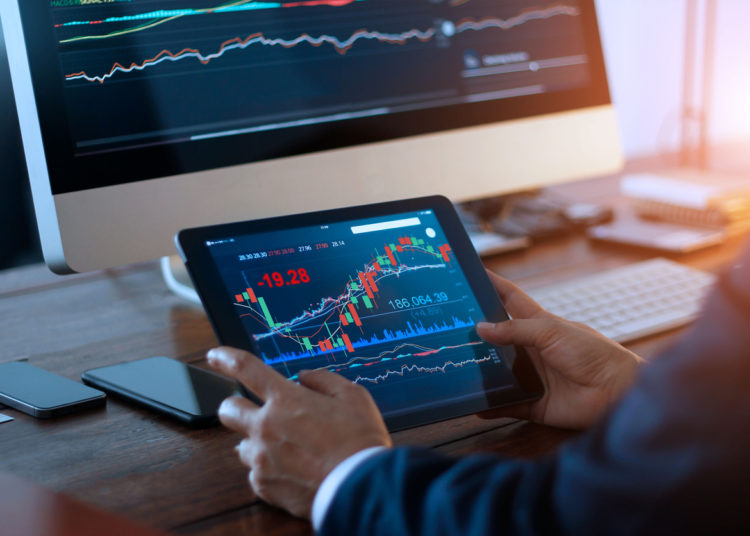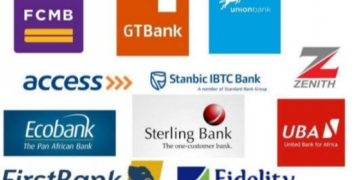The era of digitalization we are now in has given a new face to trading activities. Trading can now be done with anybody or organization, from any part of the world, with just your internet connected device.
This means that with just the tip of your finger; and from the comfort of your home or office, you can transact business activities from any part of the globe. Physical meetings are not necessary, as it was in the traditional days.
When we talk of retail online trading, Nigeria cannot be ruled out among the countries that are currently recording high rate of participants, in Africa and worldwide.
Due to the popularity of online trading in Nigeria, people have been able to have wide access to several online investing platforms. This has ignited their interest in financial markets globally.
The availability of online trading platforms has helped a lot in reducing stress and time involved in trading. However, as popular as online trading is, it is essential to know that trading in financial instruments online can be highly risky.
It is unfortunate that many of the new traders encounter losses, and fail totally in achieving any set targets. This is because they are easily carried away by the glamour of advertisements of online trading, and fail to research what it entails, and the risks associated with it
Statistics show that about 80% to 90% of online traders lose their money.
So, before you put your best foot forward to trade, you need to tread with caution. Take time to weigh your options carefully, so you know what is as stake.
Let us discuss some factors you need to consider before you start trading.
Retail Trading is regulated by the SEC
Forex trading is very popular with retail traders in Nigeria. But the most important fact you should know is that Forex trading and Contract for Difference (CFDs), are not regulated in Nigeria.
However, buying and selling of stock, and trading stocks is regulated and is overseen by the Securities and Exchange Commission, (SEC).
Cryptocurrency trading is totally out of the question, as it has been banned by the Central Bank of Nigeria (CBN).
In October 2018, the SEC of Nigeria specifically warned against embracing retail online forex trading in an official statement. According to the statement by SEC, “The public is hereby advised that online retail forex trading is currently unregulated and consequently may be subject to abuse. Until a framework for regulation of online retail forex trading is developed by the SEC, any person participating or engaged in such investment activity does so at his or her own risk.”
The aforementioned statement vividly shows that forex trading is extremely risky in Nigeria. Any Nigerian trading forex, is open to sharp practices by dubious Forex brokers, taking advantage of the lack of regulation.
Trading forex is done at your own risk because there is no government regulation surrounding how these forex brokers in Nigeria operate.
Even if you patronize brokers that are regulated by foreign regulators, fund recovery may take time in the event that you are scammed by one of them.
You can lose more than your initial capital when using leverage
Leverage means borrowing money from your broker to trade.
You could be trading Stocks, Currencies, Commodities etc. and the principle is largely the same. Leverage is expressed as a ratio example 1:20 meaning with $1 you can trade assets worth $20
Taking this loan gives you the advantage of buying more assets than you could afford with the cash in your account.
Note that your broker may entice you with high amounts of leverage for his own advantage. This is because whether you make profit or not, you are mandated to pay interest while repaying the loan.
Some forex brokers may even offer you leverage as high as 1:1000 taking advantage of the fact that there is no regulation by SEC.
Example 1
Let us assume you want to buy 100,000 units of GBP/EUR pair at a rate of 1.1924 per unit the contract sum will be $119,240.
If your forex broker offers you a leverage of 1:1000 you will be required to contribute just $119.24 to open the trade. This means $119.24 is your initial capital outlay.
If you are unlucky and the exchange rate falls to 1.1914, you lose $100 which is 83% of your initial capital outlay.
But what if the leverage was 1:10?
Your contribution or initial outlay would have been $11,924 and that loss of $100 would have represented about 1% of your initial capital outlay. Take note of the percentage losses: 83% vs. 1%
Whether you are a Forex or stock trader, you should note that as good as leverage may seem, it can also make you lose a substantial amount of your trading capital. It can even make you lose more than your trading capital.
So, have this fact in your mind before engaging in margin trading.
Your broker can work against you
According to research by Safe Forex Brokers, there are over 50 offshore forex brokers that accept clients from Nigeria. Among these only a few are regulated with tier-1 regulators like FCA or ASIC. Most of the other brokers are unregulated by any Top-tier regulators, and register clients under Offshore regulations like Tier-3 regulations in Island countries.
Such brokers have very low trust, and no accountability. And these brokers can scam traders & run away with your money.
There have been cases of some brokers, who work in cahoots with bigger traders, to engage in what is called stop loss hunting. This is a strategy usually adopted by larger traders, to force some smaller players out of their positions.
The larger traders, in connivance with some bad brokers, could manipulate the price of an asset to a stage where your stop loss order is activated.
After a barrage of stop loss orders might have been triggered, it leads to temporal high volatility which the professional traders profit from.
During High Volatility, Price Gapping May Occur
Price Gapping can be defined as a situation where the price of an asset in online trading is different from the previous one without trading activities taking place in between.
Price Gapping usually erupts during high market volatility. It also happens during work-free days like public holidays and weekends. After resumption of trading, the price of the asset may have jumped over the stop price you set. The new price of the asset may be less than the one you anticipated.
When this happens, you are forced to buy or sell at a different price than you had anticipated. This could reflect heavily on your profits and losses, since you couldn’t execute the stop order at the right price.
Fees may affect your gains
Someone who wants to be an active trader should note that it involves frequent opening and closing of positions and this attracts a lot of fees both for Forex and stock trading. So, a new trader who doesn’t understand this, may get his profits eroded through myriad of levies.
In Nigeria, Capital Gain Tax is not levied on the sale of stocks, and government debt such as bonds. This is to encourage participation in the capital market.
However, in Forex trading, foreign brokers may charge you as high as $15 as an inactivity fee but with the current exchange rate of N415.57 to one Dollar, that amount is quite tangible. There are also other fees like commissions, overnight swap fees, and so on.
Spread should also be taken into account. This is the difference between the buy and sell price of an asset. Most zero commission forex brokers make money through this.
When buying a currency pair, you buy at the Ask price which is always higher. When you want to sell that same currency, you sell at the Bid price which is always lower. That price difference is enjoyed by the broker.
You May Get Addicted
Online Trading comes with advertisement of financial freedom and high profits, but there is a high probability you may end up losing all your money, and even borrowing from friends.
Just like gambling, a trading addiction could make you lose your personal savings, properties and even your marriage.
In fact, some Nigerian Banks have banned their staff from forex trading after it was discovered that some of them were using customers’ funds to trade in Forex.
Don’t Put Money that you cannot Afford Losing
Online trading is always painted as rosy and you are never told about risks you could be exposed to. Whether you trade forex or stock one thing is certain- you will record a loss as some point.
Limit the losses you could make by using stop loss orders to set a stop price so that once the asset drops past that price your position is closed immediately.
Only invest funds that you don’t have urgent need for and you won’t lose sleep over if you lose. Online trading carries high risks and it is better to explore the option of investing your funds in the capital market also.




